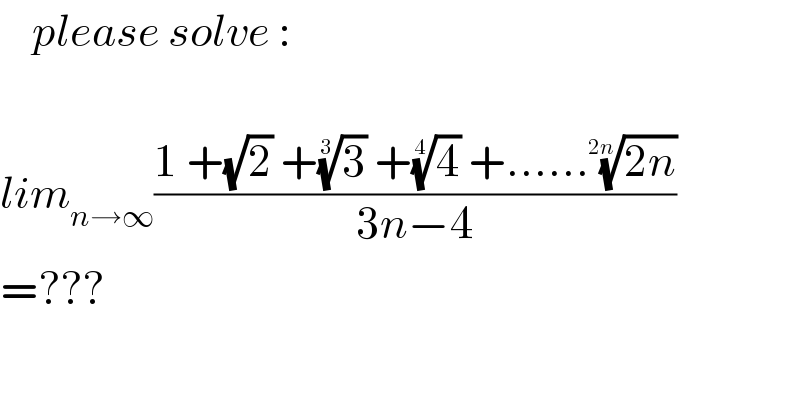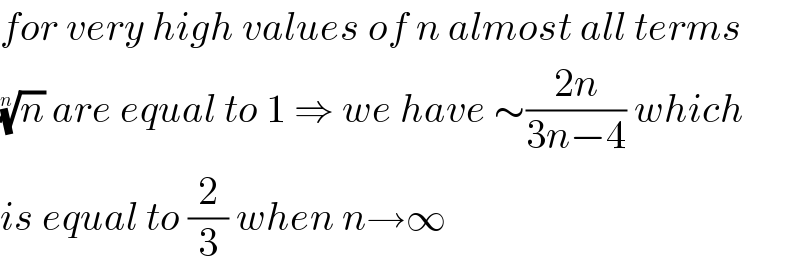
Question and Answers Forum
Question Number 109736 by mnjuly1970 last updated on 25/Aug/20

Answered by Her_Majesty last updated on 25/Aug/20

| ||
Question and Answers Forum | ||
Question Number 109736 by mnjuly1970 last updated on 25/Aug/20 | ||
 | ||
Answered by Her_Majesty last updated on 25/Aug/20 | ||
 | ||
| ||